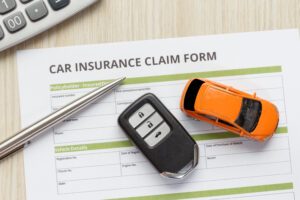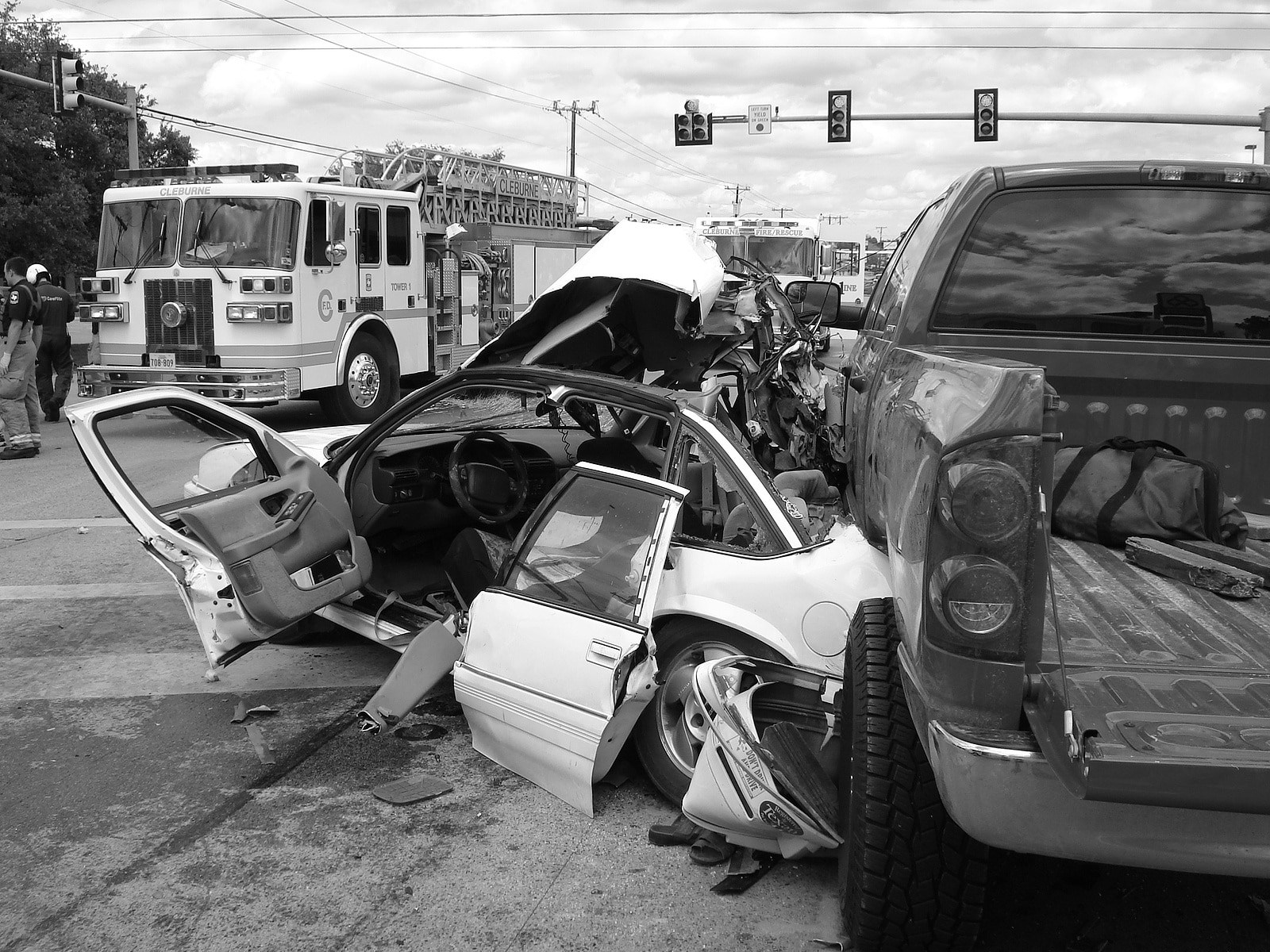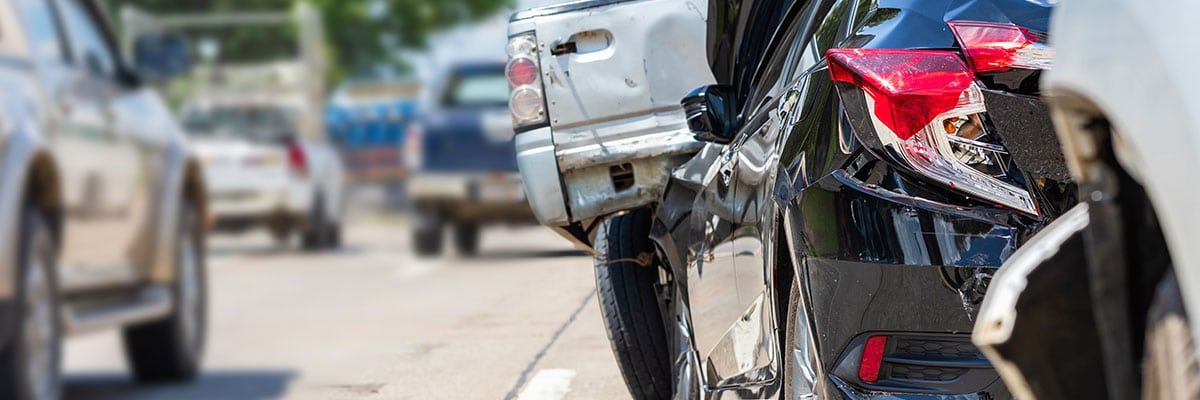
There are at least six million motor vehicle accidents annually in the United States. The vast majority of them cause property damage only, but many also involve injuries and fatalities. Property damage, injuries, and death can be the basis for a claim for compensation.
The vast majority of these car accident claims settle outside of court, and only a small percentage end up in the courtroom. If all car accident cases were to go to court, it wouldn’t take long for the judicial system to collapse.
With the right legal help from a car accident attorney, you can resolve your claim as efficiently as possible. However, you also want to hire a Wesley Chapel car accident lawyer ready to head to court whenever necessary.
Most Car Accident Cases Settle Out of Court
Statistically, only 3 percent of all tort cases, including car accident claims, go to trial. This means it is very uncommon for claims arising from car accidents to go to court, even though injured victims and families of those killed have a right to file a lawsuit and fight for compensation in the courtroom
Instead of going to court, the individual who files a claim for compensation accepts a settlement offer. By agreeing to resolve the claim out of court, the individual who suffered harm receives a payment in exchange for giving up their right to a trial.
As such, a settlement brings a car accident claim to a definitive end. While these claims often settle out of court, some may require the court’s involvement.
When Is a Car Accident Case More Likely to Go to Court?

While many car accident cases are resolved through negotiations or settlements, some might find their way into a courtroom.
Understanding the key factors that increase the likelihood of a car accident case going to court can help you prepare for the possible trial ahead of time:
- Severe or permanent injuries. Car accidents in which victims suffer serious or permanent injuries are more likely to go to trial. These injuries are often associated with higher compensation claims to cover extensive medical treatment, long-term care, loss of income, and diminished earning capacity, among other damages. When the stakes are this high, insurance companies may fight harder to minimize payouts, potentially leading to court battles.
- Death. In instances where a car accident results in death, the complexities of the case increase considerably and become much more emotional for everyone involved. Wrongful death claims often involve substantial sums, not to mention that the determination of liability can become more contentious, which increases the chance of the case seeing the inside of a courtroom.
- Disputed fault. When the parties involved in the crash or their insurers cannot agree on who is at fault, the case may end up in court. Disputed fault can stall settlement negotiations, necessitating a judge or jury to determine responsibility based on the evidence presented.
- Disagreement over the recoverable damages. Even when fault is established, disagreements over the amount of recoverable damages can still push a case to trial. This may involve disputes over whether the injuries can be attributed to the accident (especially if the victim had pre-existing conditions) or the accuracy of estimates regarding future costs and losses.
- Uncooperative parties or insurers. If the other party or insurer refuses to cooperate during the claims process, you – as the injured party – might have no choice but to pursue litigation. In particular, insurers acting in bad faith by refusing to pay a fair claim might force a plaintiff to seek a court’s intervention.
- Complex legal issues. Sometimes, a car accident may involve complex legal questions or factual issues that cannot be easily resolved outside a courtroom. Issues like shared fault, vicarious liability, or product liability in the case of a malfunctioning vehicle part might require intervention from the court.
If any of these factors apply to your car accident case, you will likely end up in the courtroom sooner or later. However, none of these scenarios guarantee that your case will be tried in court.
With a skilled car accident lawyer on your side, you may still resolve your legal issues outside of court.
For example, if there are disputes regarding compensation, your lawyer will collect all available documentation and take any other necessary steps, including consulting with expert witnesses, to strengthen your case and convince the other party or the insurance company that your request for compensation is reasonable.
Reasons Why Most People Do Not Want to Go to Court
The decision to take your legal dispute before a judge or jury is not one you should take lightly.
Why?
Well, there are quite a few reasons why most people wish to avoid litigation and seek alternative means to settle their conflicts, including:
- Going to court may cost a lot of money. One of the primary reasons people do not want to go to court is its significant financial cost. Attorney’s fees, court costs, and other related expenses can add up quickly, creating a financial strain for the parties involved. For many, the potential financial burden outweighs the benefits of pursuing a case in court, especially when there are no guarantees of a favorable outcome.
- Trials can take many months or years. It is not uncommon for trials to extend over several months or even years before they conclude. During this time, plaintiffs and defendants must continually invest time in preparing their cases and attending hearings, often at the expense of their personal and professional lives. The prolonged nature of court proceedings can be physically and emotionally draining.
- Trials can be unpredictable. The court system – despite its structure – can be unpredictable. Outcomes hinge on various factors, such as the evidence presented by the parties, the persuasiveness of the legal arguments, the biases of jurors, and the judge’s decisions. This unpredictability can be unnerving for individuals who want a definitive and just resolution to their case.
- Trial records are available to the public. One of the lesser-known – yet very impactful – concerns is the public nature of trials. Court records, including testimonies and decisions, are typically available to the public. This can mean unwanted attention and public scrutiny, potentially harming personal relationships or exposing private information to the general public.
- You can get compensation faster without a trial. In cases where the car accident victim seeks damages, settling out of court often leads to a faster resolution. The parties involved may prefer a swift settlement to a protracted legal battle. This allows the victim to pay their medical bills and the expenses incurred due to the crash.
- People want to move on. The emotional toll of going to court cannot be overstated. Legal disputes are often stressful and consume a tremendous amount of emotional energy. Many individuals choose to avoid court simply because they want to end this challenging chapter of their lives and move on without the added weight of court proceedings.
While people may have various reasons to settle their claim instead of going to court, sometimes trial is inevitable and may be the only viable option left to secure adequate compensation for your losses. With the right car accident attorney, you do not have to fear going to court.
What Happens if Your Car Accident Case Goes to Trial?

If you take your car accident claim to court – which is the decision you should not make without a car accident lawyer – you need to understand how the litigation process works and what steps to expect when your case is headed to trial:
- Filing a lawsuit. The first step in taking a car accident case to trial is formally filing a lawsuit. This action officially marks the beginning of the legal process and sets things in motion. Your attorney will draft and file a complaint with the court, stating the cause of the action and the damages sought. However, note that the filing must occur before the statute of limitation expires. This statute differs from one state to another. In Florida, for example, injured victims of car crashes typically have two years from the date of the injury to file a lawsuit (Fla. Stat. § 95.11).
- Waiting. After the lawsuit is filed, there is often a waiting period – possibly a year or longer in extremely busy jurisdictions – before the case goes to trial. This timeframe depends on the court’s schedule, the complexity of the case, and other factors.
- Discovery. Discovery is a critical phase where both parties (the plaintiff and the defendant) exchange information. It allows each side to gather evidence that supports their arguments. This can include witness depositions, document requests, and interrogatories (written questions that require written answers).
- Motions. Before the trial, parties can file motions to resolve specific legal issues if needed. These might include motions to dismiss the case, compel discovery, or summary judgment motions, where a party seeks to have the case decided in its favor without a trial based on the evidence uncovered during discovery.
- Jury selection. If a jury decides the case, both sides select the jurors. During this process, they will question potential jurors to determine any biases or predetermined opinions that may affect the outcome of the case.
- Trial proceedings. The trial follows a structured process with opening statements, witness testimonials, cross-examinations, and closing arguments. The plaintiff and defendant will present their arguments to the jury or the judge.
- Verdict and award. After hearing all the arguments and evidence, the jury or the judge will deliberate before they reach a verdict. If the verdict is in the plaintiff’s favor, they will also determine what amount to award. In personal injury law, damages compensate the plaintiff for their losses related to the accident, such as medical bills, lost income, and more.
- Appeals. Following a verdict, the losing party has a right to appeal the decision to a higher court, arguing there were legal errors that influenced the trial’s outcome. If successful, an appeal can overturn the verdict or result in a new trial.
The steps involved when taking your car accident claim to court can seem daunting. However, by understanding what to expect, you can prepare accordingly and build confidence in pursuing justice.
How Long Do Car Accident Trials Take?
The duration of a typical car accident trial can vary depending on:
- the complexity of the case;
- jurisdiction; and
- court schedules.
The trial itself can last anywhere from one day to several weeks. However, most car accident trials are completed within a few days once they commence, especially when a skilled and resourceful car accident attorney represents the plaintiff.
You need to remember that preparation leading up to the trial is a time-consuming step in and of itself. It involves negotiations between parties, the discovery process, jury selection, motions, and pre-trial conferences. This stage, which can span several months or even years, can contribute to the timeline before opening arguments are heard.
Understanding the timeline of a prospective trial in your case is crucial for setting realistic expectations and being patient through the process, which is why you might want to consult with a lawyer before you go ahead and file a lawsuit to initiate the court proceedings.
Do You Need a Lawyer if Your Car Accident Case Will Probably Settle Anyway?
This is a common question people ask when they realize that their car accident claim will most likely end in a settlement. Does hiring a lawyer make sense if you can settle your claim and your case won’t go to court? The short answer is, “Yes, it does.”

The probability of your claim settling on favorable terms depends on (a) negotiation skills and (b) the ability to present a solid case. Unfortunately, as is often the case, the chances of settling a claim for a fair amount are low if you do not have a skilled lawyer fighting for you. A lawyer has the required experience to negotiate the highest possible settlement offer and present your case in the most favorable light.
Here are some of the ways a lawyer can benefit your car accident case:
- Investigate the accident and identify liable parties
- Collect all available evidence of the other party’s fault
- Determine the value of your case
- Negotiate with the insurance company on your behalf
- Advise you on your legal options, including whether you should settle or take your case to court
- Prepare your case to court
- Represent your best interests in the courtroom
To streamline the process and improve your chances of receiving maximum compensation, consider speaking with a car accident lawyer early in the process. They can guide you from the initial claim up to the resolution of your car accident claim, fighting for the best possible outcome that aligns with your objectives and needs.



